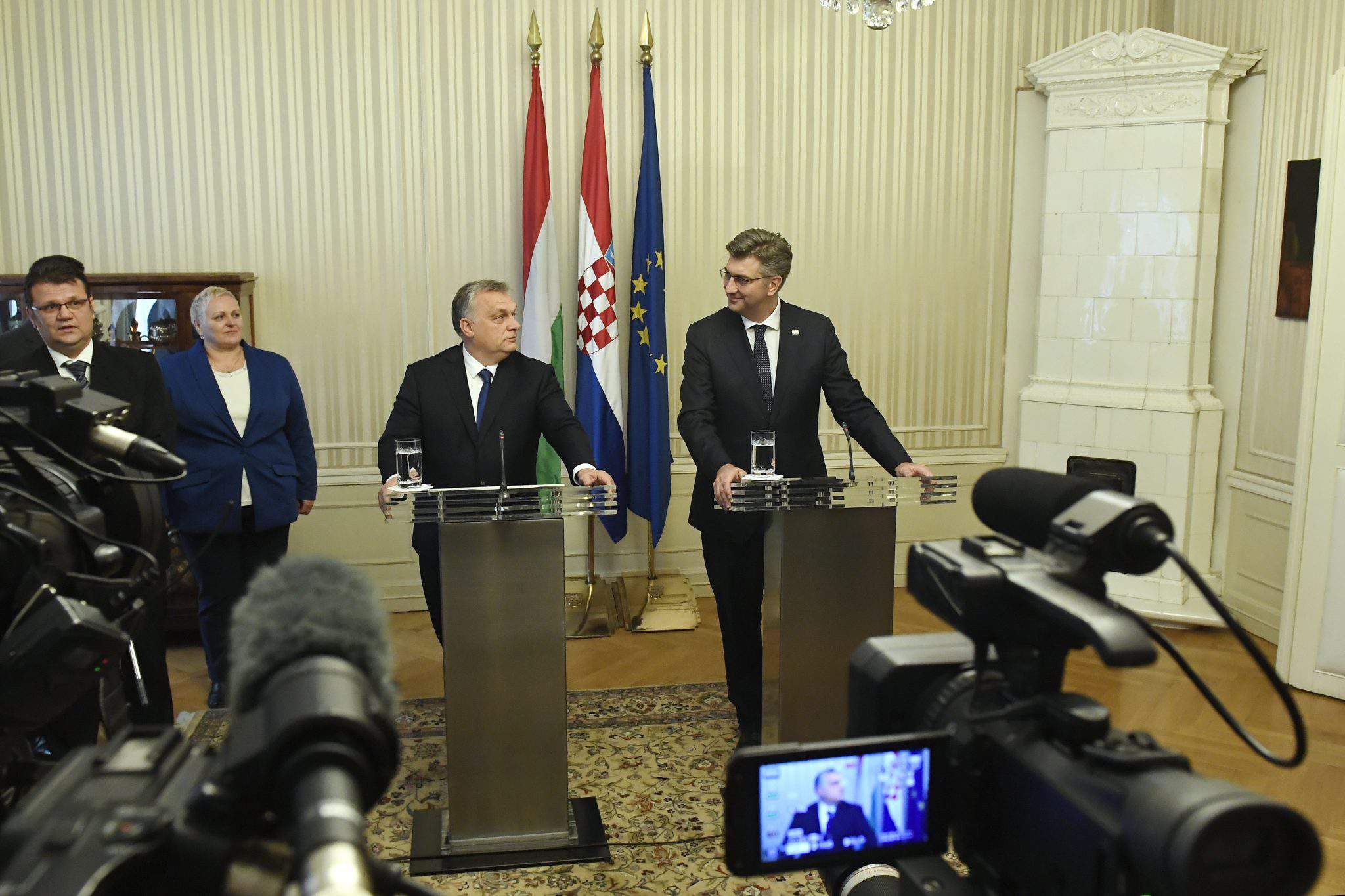Orbán: No economic issue more important than Hungarian-Croatian friendship

Addressing a joint press conference with his Croatian counterpart Andrej Plenkovic in Zagreb on Monday, Prime Minister Viktor Orbán said he did not know of any economic issue that would be more important than the 800 years of friendship shared by Hungary and Croatia.
Orbán, who is on his first visit to Croatia in seven years, said after talks with Plenkovic that the lack of energy that currently characterises Hungarian-Croatian ties was “unnatural”. He said he had arrived in Croatia to help put bilateral relations back on the right track.
“The thorn must be removed from beneath the nail, and then everything will be alright,” Orbán said. “This is what we would like.”
Orbán said he and Plenkovic had made progress in their talks on the two countries’ ties both in their private meeting and the plenary meeting between their delegations. “We have common ground in terms of a historical perspective,” Orbán said. “We want a strong Europe, we want to strengthen cooperation among European nations and we’d be happy to see Croatia join the Schengen zone as soon as possible, because this too will strengthen Europe,” he added.
Further, both sides see bilateral economic cooperation as excellent, Orbán said. Bilateral trade turnover is constantly rising, as is the number of Hungarian investments in Croatia and more and more Hungarian tourists are visiting the country, he said.
The prime minister also said Croatian and Hungarian minority groups both enjoy living in each other’s countries.
Hungarians living in Croatia are content with their government and speak respectfully about Croatia and Croats living in Hungary are also enjoying the strongest support they have seen from Budapest in a long time, Orbán said.
Asked about the dispute surrounding Hungarian oil and gas company MOL and Croatian energy company INA, Orbán said that if Croats and Hungarians were incapable of working together on a business matter, then they should not, and Croatia should buy back INA.
MOL holds just under half of INA’s shares but has management rights in the company. The other big stakeholder is the state of Croatia. The sides have long been at odds over INA’s strategy.
Asked about the case of MOL President-CEO Zsolt Hernádi, for whom there is an international arrest warrant in place, Orbán said Hungary considered the case a legal matter. “Politics never gets involved in legal matters in our country,” he added. Justice must take its own course according to its own logic, the prime minister said.
Orbán said he would not make any backroom deals regarding any legal matter and that he insisted on the separation of international political relations and legal matters.
On the topic of the LNG terminal under construction in Croatia, Orbán said the role of natural gas was declining in Hungary’s energy mix, as Hungary is busy expanding its nuclear plant and building solar farms. However, given that it will take years before these new energy sources are ready to be tapped, natural gas will remain important, Orbán said, adding that price was the key when it came to gas supply.
The cheapest way for Hungary to get gas is to import it from Russia, he said. The second cheapest option is Romania, followed by Slovakia and then Croatia is only the fourth cheapest, he added. “This is a matter of price for us,” the prime minister said. “If we can find a business model that presents Hungary with an acceptable price, we will cooperate.”
Plenkovic said Orbán’s visit would play an important role in advancing the two countries’ relations. Annual bilateral trade turnover is at 2 billion euros, he said, adding that some 600,000 Hungarian tourists have visited Croatia this year.
On the topic of the MOL-INA dispute, Plenkovic said the issue had been making bilateral ties difficult for ten years now.
Both governments want to settle the dispute, Plenkovic said, adding that it was important not to let the issue continue to affect bilateral ties.
In response to a question, Plenkovic said the Croatian government still intended to buy out MOL’s stake in INA, but it was all a question of price. “But until then … the aim is for both companies to function well.”
Featured image: MTI
Source: MTI


